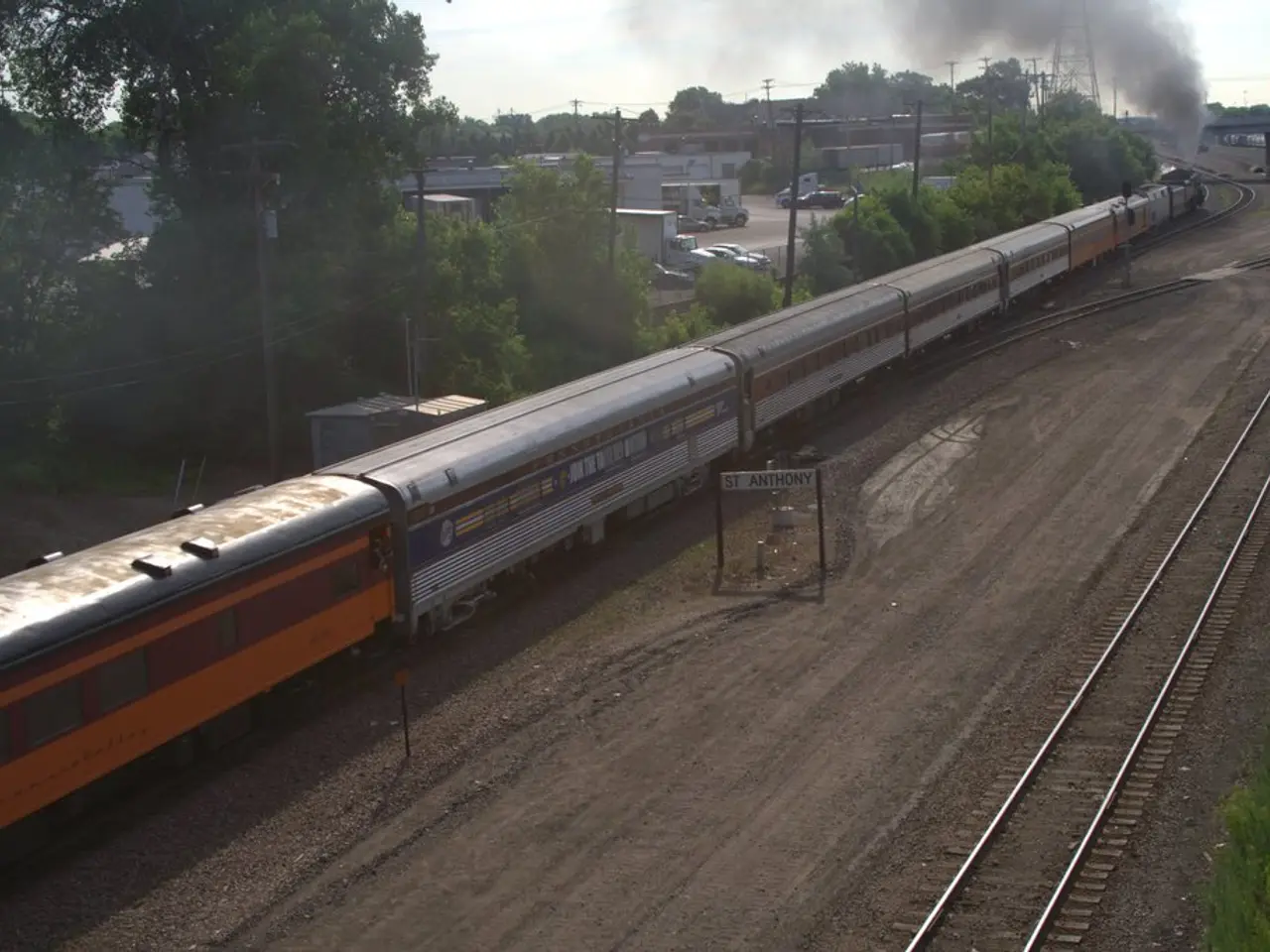Northwest Railway to Enhance Heatwave Protocols After Recent Incidents - Railway Services in the Northwest to Enhance Heat Management Procedures
In a recent incident on July 1st, a train between Bern and Elsflech in the Wesermarsch region of Germany experienced a fault with its air conditioning system, resulting in passengers being stranded during high temperatures. Approximately 48 train passengers found themselves in sweltering conditions, with temperatures exceeding 30°C, as the train came to a halt.
The incident, which took place on a train operated by North West Railway, led to further disruptions in rail traffic and strained coordination and communication among all involved parties. State and federal police, along with emergency services, arrived to assist the volunteer fire department and the Technical Relief Agency Nordenham in freeing the passengers from the train. Five individuals were treated for circulatory issues and dehydration.
Following the incident, North West Railway has announced plans to improve its procedures for extreme weather conditions. The railway company can learn from best practices and lessons from other regions affected by extreme heat to ensure passenger comfort, safety, and reduce disruptions during future heatwaves.
One key area of focus is enhancing the monitoring and maintenance of air conditioning systems. Regular inspections and preventive maintenance of HVAC units on trains are crucial to prevent failures during heatwaves. The Elsfleth incident underscores the need for reliable cooling systems to protect passengers from sweltering conditions.
Another essential measure is implementing real-time rail temperature monitoring and proactive speed restrictions. To avoid issues like track buckling caused by heat (with rails reaching up to 50°C or higher), deploying heat patrols and imposing speed limits during extreme weather can help maintain safety and reduce infrastructure damage.
Developing passenger safety protocols for heat emergencies is also crucial. Procedures for rapid response when cooling systems fail, including alternative transport options or evacuation plans, are essential to mitigate health risks.
Improving communication and passenger support during heat events is equally important. Informing passengers proactively about delays, heat-related risks, and available assistance can reduce stress and health impacts.
Collaboration with health and safety agencies can further inform specialized care for passengers at risk, including the elderly and those with medical conditions. Learning from protocols like those employed by New York State Departments during heatwaves—such as ensuring hydration, rescheduling activities, and protecting vulnerable populations—can provide valuable insights.
By integrating these steps, North West Railway can better safeguard passenger comfort and safety, maintain infrastructure integrity, and reduce disruptions during future heatwaves. Passengers who were affected by the incident can apply for compensation or reimbursement through North West Railway's customer service. Evacuation was deemed risky due to the difficult terrain around the Hunte bridge, and towing the train was discarded due to safety concerns, in consultation with DB Infrago.
- To mitigate future incidents caused by extreme heat, North West Railway is planning to incorporate vocational training for its technicians to enhance the monitoring and maintenance of air conditioning systems within their fleets (Community policy, vocational training, HVAC units).
- In an effort to improve passenger safety during heat emergencies, North West Railway is developing protocols for rapid response when cooling systems fail, including alternative modes of transport or evacuation plans (health-and-wellness, heat emergencies, passenger safety).
- To ensure appropriate care for passengers with medical conditions during heatwaves, North West Railway will collaborate with local health and safety agencies and learn from best practices employed by health departments in regions like New York State (medical-conditions, collaborate, health departments).




